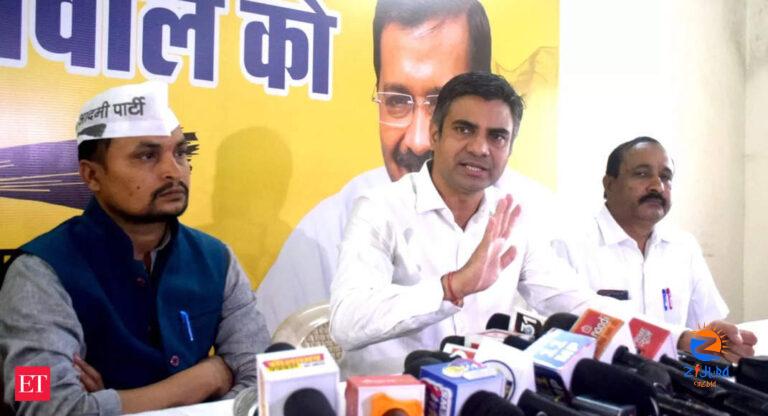
[ad_1]
Pathak also extended his condolences to the bereaved families.
At least 288 people were killed and more than 800 injured in a train crash involving the Bengaluru-Howrah Superfast Express, the Shalimar-Chennai Central Coromandel Express and a goods train in Odisha’s Balasore district on Friday.
The two express trains were carrying nearly 2,000 people.
Pathak, who is also a member of the Parliamentary Standing Committee on Railways, said ensuring the safety of train passengers is not on the government’s agenda.
“In the last meeting of the railway committee, I had suggested that the government focus on the safety and security of passengers first. But the government’s entire focus is on PR and showing off, not on safety and security,” he said. Installing anti-collision devices is the most important measure to avoid accidents but only 2 per cent of India’s 65,000-kilometre rail network is equipped with these, he claimed. If the Modi government has covered just 2 per cent of the rail network in nine years, then it means that it will take more than 400 years to install anti-collision devices across the network, he said.
According to Pathak, only 65 of the country’s 23,000 trains are equipped with anti-collision devices.
“We have received information that anti-collision devices have been installed in just 65 of the total 23,000 trains in the country, which is less than 0.2 per cent. This makes it clear that safety is not the government’s priority,” the AAP leader charged.
In 2014, the government had said that anti-derailment devices will be installed across all rail networks, Pathak said.
But no data is available on this, he said.
Pathak said upgrading railway tracks is another important measure that can prevent derailment of trains.
Of the 65,000-kilometre railway network, upgradation work has been carried out for just 37,000 kilometres of tracks, he claimed.
[ad_2]